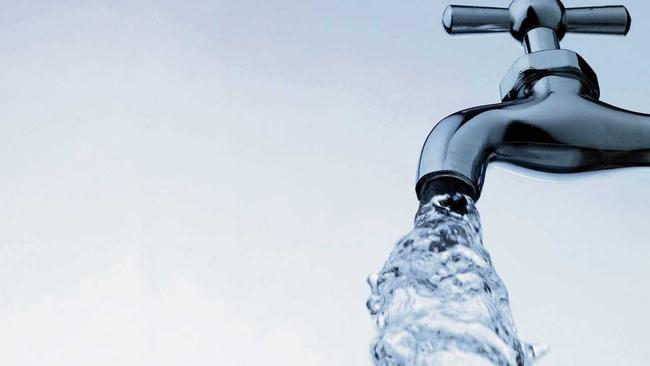OPINION: Utility providers are killing small business
In government-owned enterprises and agencies, if things start to get uncomfortable, you just put up fees and charges

Opinion
Don't miss out on the headlines from Opinion. Followed categories will be added to My News.
SOMETIMES I think the world would be a very different, and better, place if bureaucrats had even the foggiest idea of what life was like in the real world.
For most companies, big or small, success is about getting the right balance between the two most critical aspects of business - making sales and managing costs.
Keep your costs below sales revenue, and you make a profit. Fail to do so, and you're in trouble.
But everyone knows it's not that simple.
If the marketplace doesn't like your product, or thinks it's too expensive, they won't buy it. And often you have little, or no control, over the cost of inputs.
Sales go down; costs go up - and you face insolvency, bankruptcy, ruin.
That's the reality of life in the real world, particularly in the world of small business.
It's different, it seems to me, in government-owned enterprises and agencies where, if things start to get uncomfortable, you just put up fees and charges - and ignore the sometimes disastrous effect that has on small business.
Let me tell you what happened to an acquaintance of mine who runs a chemical manufacturing business.
The business started in 1987 and has been at the same Narangba address ever since. It employs about 50 people, has a positive effect on the local economy, pays its taxes, and makes a modest profit.
Because of the nature of its business it relies heavily on water, and pays accordingly. Its annual water bill was about $40,000.
That was until late 2015 when Unity Water - a government statutory authority that provides water and sewerage facilities to the Moreton Bay, Sunshine Coast and Noosa communities - decided to change the way it calculated costs.
And this small business, which had not altered its procedures and was not using any more water than in previous years, suddenly received a water bill for $60,000.
The explanation? Unity Water had decided to change the way it charged.
Instead of just the amount of water used, this company was now going to be charged for the size of the pipe that brought water to its factory.
I just cannot see that the Unity Water board, or the regulators who have allowed this to happen, can look this small business in the eye, and say that the process is fair and just.
And, while I'm on the subject of water, can somebody tell me why I should be expected to pay a fee because a property I own is connected to a water pipe that runs past it, but from which I never take water?
I'm told it's because I could access the water should I ever require it. So charge me then. And if it's to cover infrastructure costs, I thought that was why developers paid water infrastructure charges.
It's about the best business model I've ever heard of.
Maybe I should start up a coffee shop near Unity Water's head office and charge Unity Water for the cost of all the coffee their employees don't buy as they walk past my shop!
In case you think this is a tirade against just Unity Water, let me tell you another story.
I was involved in starting up a small business that manufactured plastic bottles. It employed 30 people, turned over around $8 million a year and received accolades for its innovation and the quality of the products it manufactured.
But after 10 years we were forced to close down the business while we could still afford to pay all our debts and employee entitlements.
What went wrong? This particular business had three main cost areas - wages, raw materials and electricity.
Measured against sales, raw material costs increased by 2%, wages were flat, but electricity costs rose 13.3% in the last four years of operation.
It was the unremitting rise in electricity costs that could not be tempered by improved manufacturing processes (wages) or less wastage (raw materials). Rising electricity prices constantly squeezed the company's margin and led to it closing its doors.
Utilities like Unity Water - and other government agencies and listed corporates that operate similar monopolies - have a responsibility not just to their shareholders, but to the customers they purport to service.
They need to also take responsibility for their own performance and operational efficiency. Their costs need to
be effectively managed and absorbed against income, as is the case with any business in the real world of commerce.
The reality is that the continuous rising costs of essential services is making many of our businesses non-competitive, and leading to their ruin. It's the death of a thousand cuts.
Tony Riddle, an accountant and company director, is the chairman of Regional Development Australia Sunshine Coast, part of a national network of 55 committees made up of local leaders who work with all levels of government, business and community groups to support the development of their regions.


